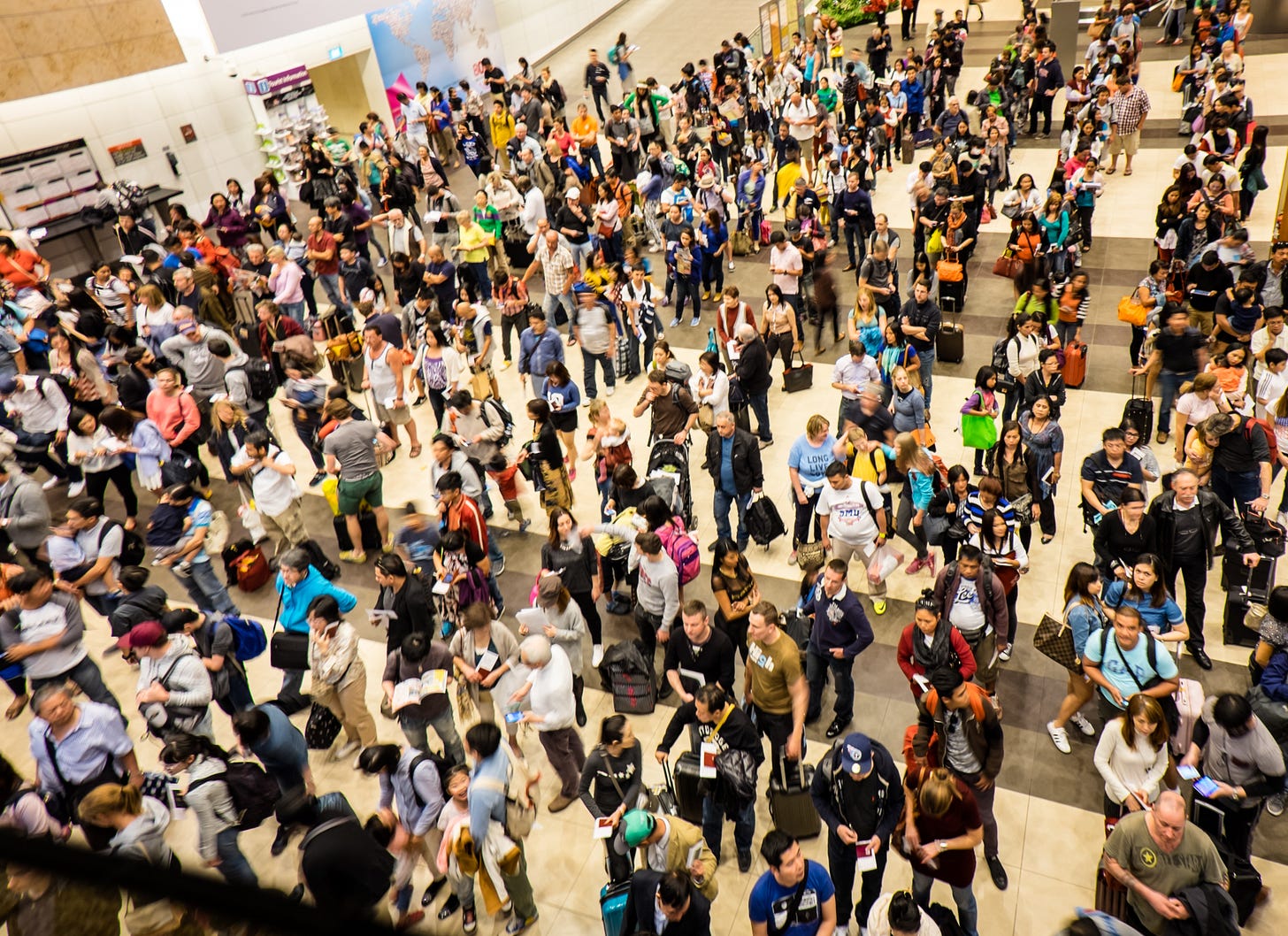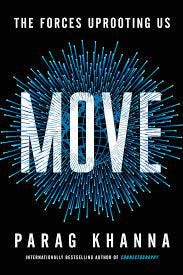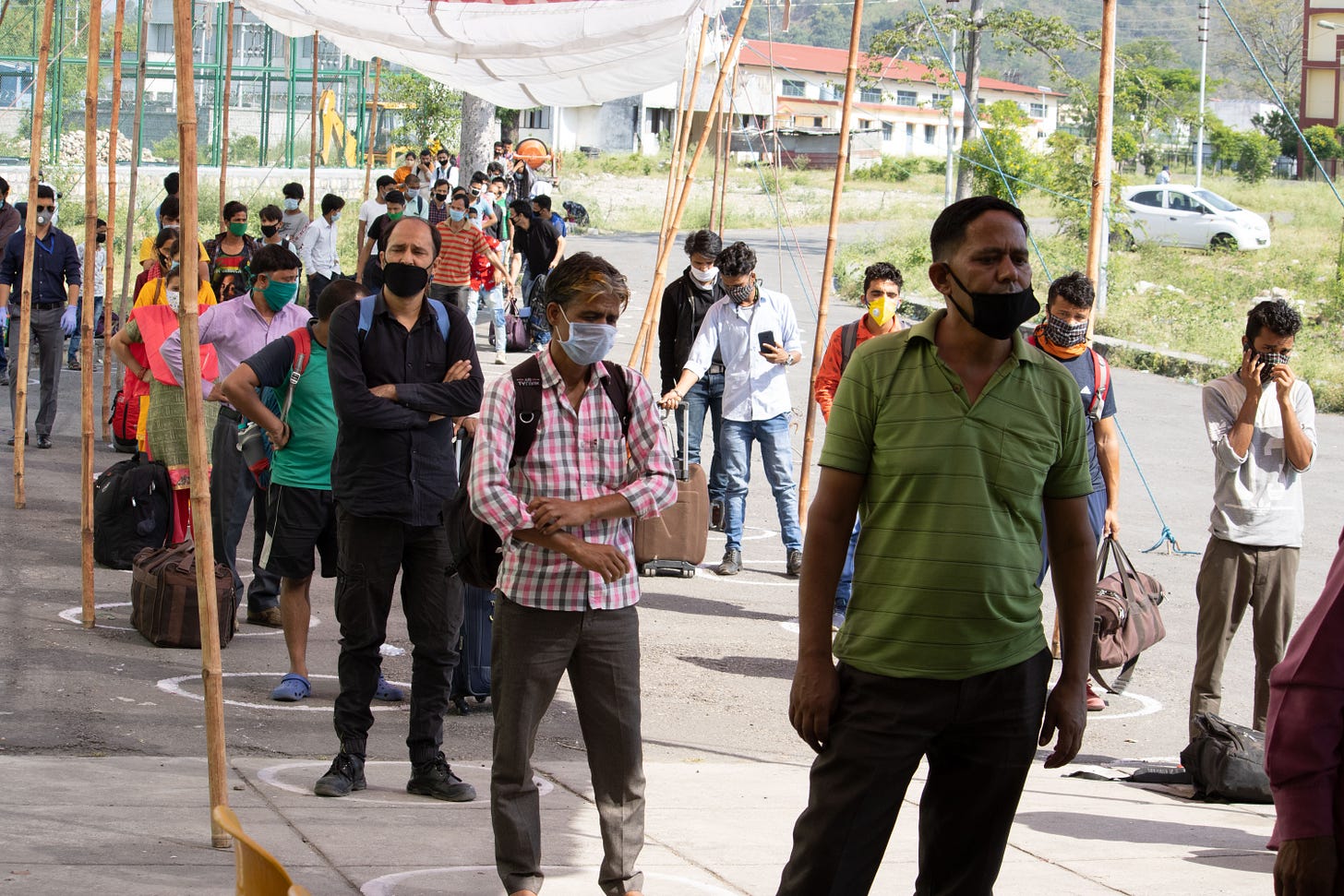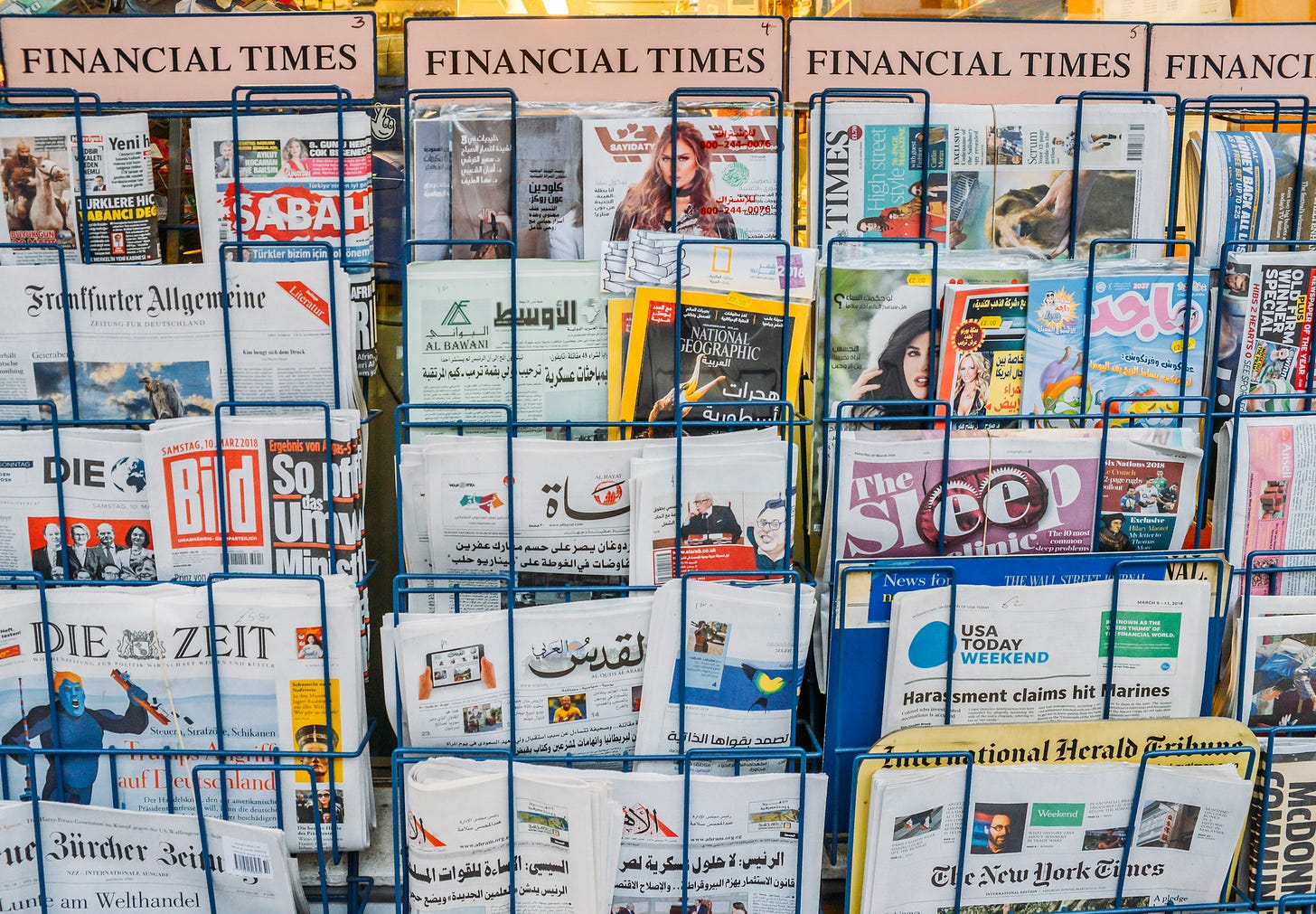Move: The Forces Uprooting Us
Parag Khanna's latest book examines a rapidly accelerating mega-trend - migration - that is as old as humanity itself, and will drive our collective future. Also: Our Recent Columns and Upcoming Ones
By Afshin Molavi
Never underestimate the human will to seek a better life.
That’s why migration will always be a part of our lives, woven into the fabric of our societies, politics, and cultures. It’s also why so many people are willing to risk their lives boarding a rickety boat to the cross the Mediterranean, mass together in caravans to reach the U.S border, work in the sweltering heat on a construction site somewhere in the Arabian peninsula, or literally hang onto a plane as it flies away.
It’s also why doctors, engineers, graphic designers, university professors and other professionals will pack their bags, and head to an unknown future in a country with better economic prospects. Just look at the professional Indian or Lebanese or Iranian or Nigerian diasporas, dispersed across the world, often highly successful wherever they go, uprooted from their homelands but enriching the soil of their new homes.
A good friend of Emerging World and fellow traveler Parag Khanna has tackled migration in his newest book, Move: The Forces Uprooting Us. It’s an extraordinary book by one of the foremost chroniclers of globalization over the past decade and a half. A central premise of the book is this: The misalignment of the geography of resources, borders, infrastructure and people is the cause of today’s spiraling complexity, and the resulting chaos and chain reactions will force ever more people - billions - to relocate or flee to new habitats in the decades ahead due to conflict, climate change, or in search of economic livelihoods.
I’ve known Parag for nearly two decades. He is a dogged traveler, a voracious reader of both history and current affairs, and an insightful analyst. His books - and life - embody a particular moment in the history of 21st century globalization. In many ways, he has lived the central premise of his newest book: after all, he moved to Singapore from a comfortable perch in Washington about a decade ago because he saw the Asian city-state as the future.
We interviewed Parag back in February over at Emerging World, and I’ve had a rolling conversation wth Parag over the years from Washington to Dubai to Beijing and many places in between. He made a compelling argument that globalization is here to stay - "Globalization is a force greater than all of us” in our Emerging World interview.
It’s worth pulling a quote from that interview because it ties directly into Parag’s latest work.
“The news of globalization’s demise has been so exaggerated ad nauseum that I don’t pay attention to it anymore. Globalization is a force greater than all of us. It is an evolutionary process. It is not simply taking the temperature of the moment with one statistic. And it rests on connectivity. The more connectivity we build, the more globalization we have. We may have periods where we use that connectivity capacity less, but we still have the potential. We have more connectivity today than anyone dreamed of 30 years ago.”
In Parag’s latest work, Move, he also dismisses those who say the Covid-19 pandemic will permanently disrupt migration, In fact, he argues quite the opposite. We have been migrating since the dawn of human civilization and several forces are conspiring to ensure that we will see more migration, not less.
“Three crises are slamming the world at the same time,” Khanna writes, in a FP essay adapted from his book, “the COVID-19 pandemic, climate change, and a population plateau. But once COVID-19 passes, immigration will surge again as countries seek workers to fill labor shortages and people flee climate-stressed regions in search of stable habitats. Although this may seem improbable amid COVID-19 border restrictions and today’s toxic political discourse, xenophobic populism will soon be jettisoned in favor of an all-out war for young talent.”
Parag focuses much of the book on where young talent might (or ought to) go in a world where geography does not spell destiny, but rather opportunity. “The only question” facing the world in this "all-out war for young talent,” he writes, “is which countries realize it first.”
It’s a smart book, by a smart, well-traveled observer of the key global megatrends shaping our future.
Parag has been on tour, and you can catch all of his latest interviews and webinars and live events on his web site over at www.paragkhanna.com
Check out the most recent one over at NOEMA.
One interview that caught our eye comes from McKinsey Global Publishing.
Excerpt below:
“Populism is always short-lived. It’s always a failure. It always flames out.”
Parag Khanna
“If you think about Brexit and the talent and capital flight out of the UK, bad immigration policy led to a significant shortage of doctors and nurses in the NHS [National Health Service] right at the peak of COVID-19. If you fast-forward to today, the UK has turned 180 degrees on its policy.”:
“Anyone with a degree from a recognized university can gain entry into the UK without the previous requirements, such as having a job offer in hand, or even paying a very onerous, exorbitant security bond. So, in other words, getting into the UK today is easier than it was before Brexit. And the lesson in all of this is that populism is always short lived. It’s always a failure. It always flames out. We’ve seen that in the UK, we’re seeing it in Italy, we’re seeing it in the US. The bottom line is this: supply and demand should always dictate migration policy, and it should be colorblind.”
“If you look at the multiracial melting pots, from Toronto and London to Dubai and Singapore— these are hubs of cosmopolitan identity. And there are more such places emerging or on the horizon. Think of Berlin or Almaty, Kazakhstan; Tokyo; Tbilisi, Georgia. There are more and more and more. Of course, the young people who fan out as digital nomads or look for places where jobs are being created and new infrastructural projects—they will become the next melting pots. So the more that youth clusters in these and in other hubs, the more cosmopolitanism as an ethos prevails. But the only way to actually get toward this vision is to let people move.”
From a McKinsey Global Publishing interview.
From Afshin Molavi
Thank you, fellow travelers, for reading. If you are not a fellow traveler (subscriber), please hit the button above and join our growing caravan.
You will get the occasional author interview and book notice like this one, as well as a daily round-up of the top stories shaping emerging markets, quotes about markets and politics and love and life from Omar Khayyam to Steve Jobs, cool charts that tell a broader story, and the occasional column from your humble caravan leader. I’m glad to see some of our earlier columns still trending nicely. Here’s the top 4.
How Downtown Abbey and an Indian Hip-Hop Artist Explain the World
For other interviews, please see:
“The New World Has a New Terrain: A Conversation with Daniel Yergin”
Facing our Grey Rhinos with Michele Wucker
The Afghan Media Pioneer on the “Disgraceful” US Withdrawal - With Saad Mohseni
And some of my personal favorites:
How BTS and K-Pop Explain the World
Among the latest victims of Lebanon’s slow-moving implosion: the venerable English newspaper, the Daily Star. It shut its doors this week, continuing the slow sad death of print newspapers. We’ll have more on the Daily Star soon.
Until next time, fellow travelers, have a good Friday and remember, as the great Omar Khayyam reminds us, life is is fleeting, so walk forward with purpose and joy and continue sharing ideas, thoughts, nostalgic reminiscences and more with us
“Oh threats of Hell and Hopes of Paradise! One thing at least is certain - This Life flies; One thing is certain and the rest is Lies - The Flower that once has blown forever dies.”
―Omar Khayyam, Rubáiyát of Omar Khayyám







